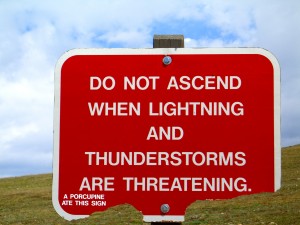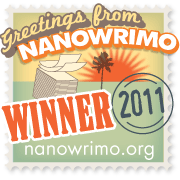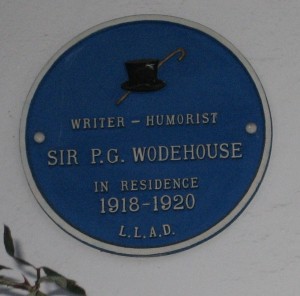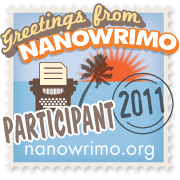
Fiction writers face peculiar challenges when it comes to generating search engine traffic.
Sabine Reed, in a guest post on published here [UPDATE: link no longer any good], tackles a topic of perennial interest to writers: how much time should we spend on social media?
It’s a good question and her answer is a thoughtful one, but I don’t think it goes far enough.
Sabine makes the following, very valid, points:
1. Google is by far the biggest source of online traffic. She points to this study, which notes that
social media sites do not drive traffic like content sites and search engines do, and it’s not even close. That means that, while all those retweets are nice to see, apparently, few people are clicking the actual link embedded within the tweeted message.
2. Writers need to generate saleable content. The corollary being: if you’re wasting hours a day on Twitter, you’re not writing your novel. And yes, that’s a problem.
But while I agree on both of those points, I don’t think they tell the whole story.
So let’s look at the problem a bit more closely — and tell me if you think I’ve missed anything here!
Yes, Content is King
As Sabine also mentions, the not-so-secret secret about driving Google traffic is to publish good content.
But what is “good content”?
It is text that Google’s bots determine to be
- Relevant and
- Authoritative
Relevance = keywords. Authoritative = linked.
This is a relatively straightforward problem if you are operating in the world of non-fiction.
Say I want to promote my dog books. All I have to do is write articles and blog posts about dogs, and dog training, and adopting a companion dog. There’s my keyword-laced content that all relates to dogs.*
I also network with other people publishing articles about dogs, and over time they link to my blog, which gives me authority.
This isn’t difficult to do, especially if you’re working in subject areas that are relatively narrow and don’t have a lot of competition. I’ve done it lots of times, both on my own blog and for other peoples’ blogs.
But when it comes to fiction, what keywords are you going to use?
If someone hasn’t read my novel Can Job, then it doesn’t matter if I write 500 articles about Borschtchester, New York, or Miles Chacuderie, or the DipTych Digital Division of DipTych Corporation.
Nobody’s going to Google those terms, because they are all made up.
Now if you write genre, you may be able to get around this. It’s arguable that there are sets of keywords specific to certain genres that you could use as Google bait. Publish 500 articles about dragons and wizards and fairies, and you could find your blog generating traffic from people who want to read about dragons and wizards and fairies.
Lucky you.
Me, I’m not so lucky. Even my book about fairies isn’t really a paranormal so much as a romantic comedy with a paranormal twist.
So what about links?
It’s a funny thing, but links without focused content aren’t really useful from a search engine perspective.
Example. The New York Times has published articles about dogs. (“Asymmetric tail-wagging responses by dogs to different emotive stimuli,” anyone?) And The New York Times gets linked by bloggers, at the rate of probably a zillion links per nanosecond.
But type “dogs” into Google and The New York Times does not get top ranking.
Links without focused content aren’t an effective way to generate high visibility via search engine rank.
So although Sabine makes valid points, I think we need to re-frame the issue.
Social media is not about generating website traffic.
For writers . . .
Social Media is About Long-Term Word-Of-Mouth, Not Short-Term Traffic
That statement would give the heebie jeebies to your average SEO professional.
Your average SEO professional focuses on driving website traffic. He/she has to. When your goal is to get people to spend money, website traffic is critical. It’s a critical link in the process of online lead generation and/or sales.

Your audience is out there — and chances are they’ll find you by word-of-mouth.
But as a novelist, I don’t care as much about traffic as about something more nebulous.
I’ve actually been wrestling with what to call it. It has aspects of “visibility” and “brand” and “platform.”
But ultimately what I need to do is generate word-of-mouth referrals.
And the way to do that is to be available when people want to connect — specifically, people who love books.
In fact, this relates to another point Sabine makes in her post:
Writers should write. The more books you have out there, the greater the number of people who will find out about you.
She notes that JA Konrath, among others, reiterate this point all the time.
But why does it work?
Word of mouth.
Write a great novel, and people talk about it. They recommend it. They publish positive reviews about it. And when they do, other people buy copies. And those people recommend it. And so on.
Which is where social media comes in.
Social Media Augments This Process
Social media can act as an amplifier.
Savvy writers know this. Watch them. They’re not tweeting to get people to go to their websites. They’re tweeting to start conversations about their books.
Yes, you need to strike a balance. You have to be conscious that time you spend on social media is time you aren’t spending on generating saleable content — novels or short stories.
But IMO it’s not accurate to say that Amanda Hocking’s success is based on the fact that she wrote a lot of books instead of doing any promotion. To quote Hocking herself: “The amount of time and energy I put into marketing is exhausting.”
So not only has Hocking invested her time in marketing, her success can be directly attributed to social media — specifically, to word-of-mouth about her writing, which was spread and amplified via social media.
My advice, then?
Writers need blogs. They need Twitter accounts. The need to be on Facebook and probably a bunch of other sites like GoodReads.
And they need to invest time in connecting with people on all of those platforms.
What do you think?








